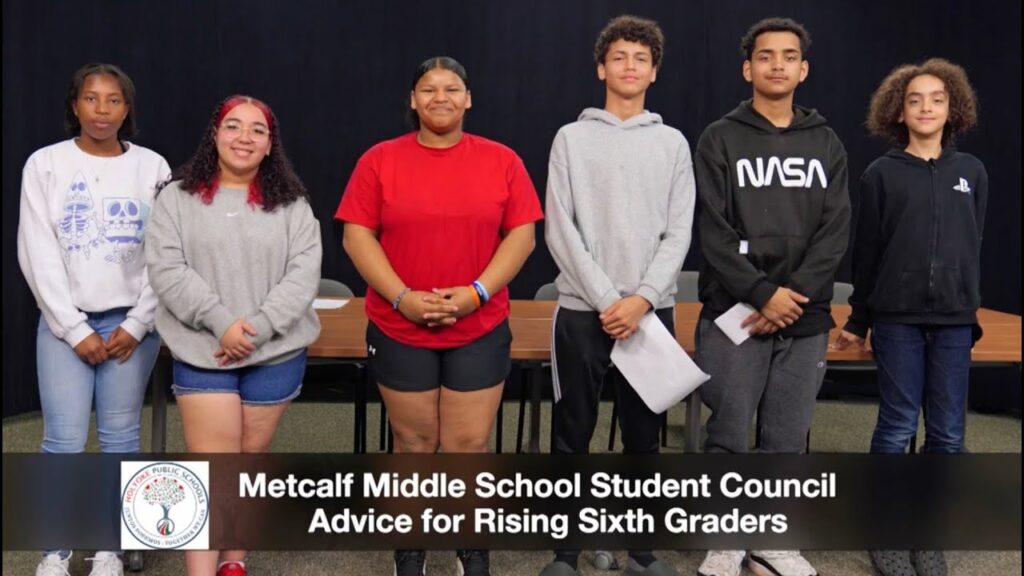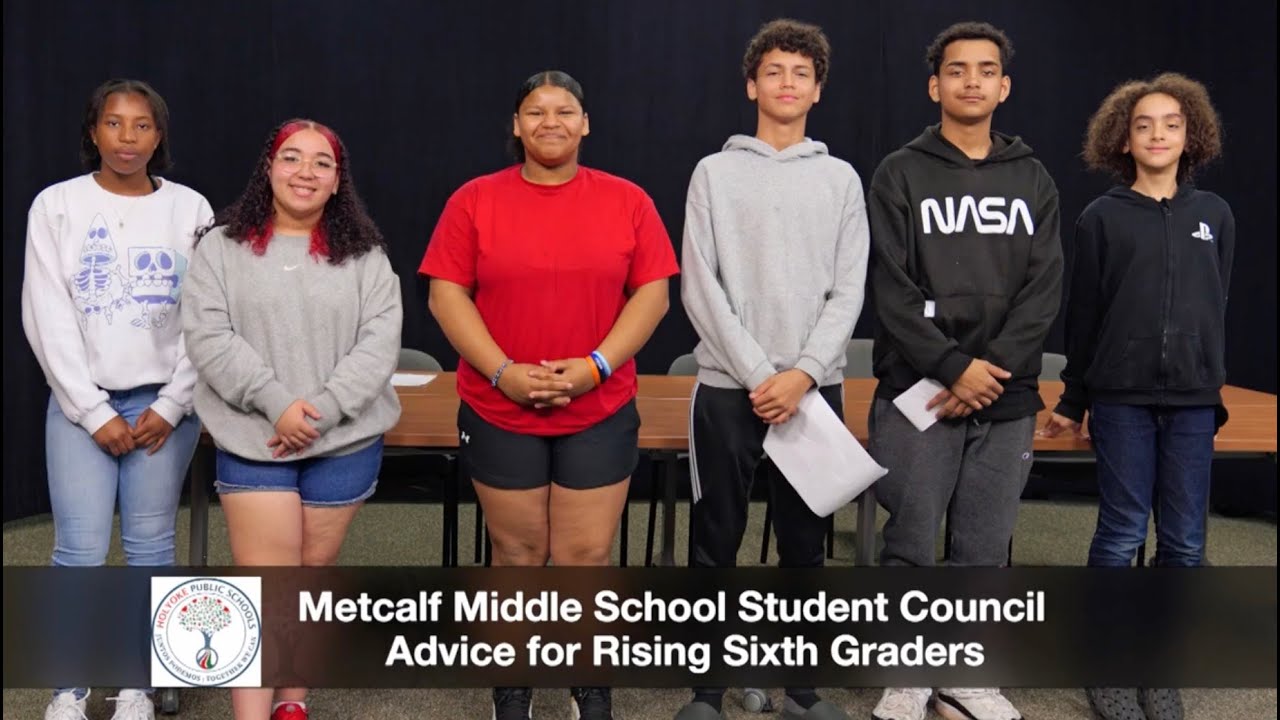
Essential Advice for Sixth Graders: Thriving in Middle School
Entering sixth grade marks a significant transition in a young student’s life. It’s the gateway to middle school, a period filled with new challenges, opportunities, and social dynamics. For many, it’s a step into the unknown, and having solid advice for sixth graders can make all the difference. This article aims to provide comprehensive guidance to help sixth graders navigate this crucial year with confidence and success.
Academic Success: Laying a Strong Foundation
Sixth grade is more demanding academically than elementary school. The workload increases, and the concepts become more complex. Therefore, establishing effective study habits is paramount. Here’s some advice for sixth graders on how to excel in their studies:
- Time Management: Learn to prioritize tasks and allocate sufficient time for each subject. A planner or digital calendar can be invaluable tools.
- Active Learning: Don’t just passively read textbooks. Engage with the material by taking notes, asking questions, and participating in class discussions.
- Seek Help: If you’re struggling with a particular subject, don’t hesitate to ask your teacher for assistance. Most teachers offer extra help sessions or are available during lunch breaks.
- Organization: Keep your notes, assignments, and materials organized. A well-organized backpack and binder can save you time and reduce stress.
- Study Groups: Collaborate with classmates to review material and prepare for tests. Study groups can provide different perspectives and help you understand concepts more thoroughly.
Developing Effective Study Habits
Good study habits are essential for academic success. Here’s more advice for sixth graders focusing on study techniques:
- Find a Quiet Study Space: Choose a location free from distractions where you can concentrate.
- Break Down Tasks: Divide large assignments into smaller, more manageable chunks.
- Use Different Study Methods: Experiment with flashcards, mind maps, and practice quizzes to find what works best for you.
- Take Breaks: Regular breaks can help you stay focused and prevent burnout. Get up, stretch, or do something enjoyable for a few minutes.
- Review Regularly: Don’t wait until the last minute to study for tests. Review material regularly to reinforce your understanding.
Social Navigation: Building Positive Relationships
Middle school is often characterized by complex social dynamics. Friendships evolve, cliques form, and peer pressure can become more intense. Here’s some advice for sixth graders on navigating the social landscape:
- Be Yourself: Don’t try to be someone you’re not to fit in. Authenticity is key to building genuine relationships.
- Choose Friends Wisely: Surround yourself with friends who are supportive, positive, and respectful.
- Communicate Effectively: Learn to express your thoughts and feelings clearly and respectfully.
- Resolve Conflicts Peacefully: Disagreements are inevitable, but it’s important to resolve them in a constructive manner.
- Stand Up for Yourself and Others: If you witness bullying or unfair treatment, speak up and support those who are being targeted.
Dealing with Peer Pressure
Peer pressure can be a significant challenge for sixth graders. It’s important to develop the skills to resist negative influences. This advice for sixth graders can help:
- Know Your Values: Identify what’s important to you and stick to your principles.
- Practice Saying No: It’s okay to decline invitations or activities that make you uncomfortable.
- Find Like-Minded Friends: Surround yourself with peers who share your values and support your decisions.
- Seek Support: Talk to a trusted adult, such as a parent, teacher, or counselor, if you’re struggling with peer pressure.
- Remember Your Worth: Don’t let others define your self-worth. You are valuable and deserving of respect.
Emotional Well-being: Taking Care of Yourself
Middle school can be an emotionally challenging time. It’s important to prioritize your emotional well-being and develop healthy coping mechanisms. Here’s some advice for sixth graders on how to take care of themselves:
- Practice Self-Care: Engage in activities that bring you joy and relaxation, such as reading, listening to music, or spending time in nature.
- Manage Stress: Learn techniques for managing stress, such as deep breathing, meditation, or exercise.
- Get Enough Sleep: Aim for 8-10 hours of sleep per night to support your physical and mental health.
- Eat a Healthy Diet: Nourish your body with nutritious foods to fuel your energy and concentration.
- Seek Professional Help: If you’re struggling with anxiety, depression, or other mental health issues, don’t hesitate to seek professional help from a therapist or counselor.
Building Resilience
Resilience is the ability to bounce back from adversity. It’s a crucial skill for navigating the challenges of middle school. Here’s some advice for sixth graders on building resilience:
- Develop a Growth Mindset: Believe that your abilities can be developed through dedication and hard work.
- Learn from Mistakes: View mistakes as opportunities for learning and growth.
- Build Strong Relationships: Connect with supportive friends and family members.
- Practice Gratitude: Focus on the positive aspects of your life.
- Set Realistic Goals: Break down large goals into smaller, more achievable steps.
Extracurricular Activities: Exploring Your Interests
Sixth grade is a great time to explore new interests and get involved in extracurricular activities. Joining clubs, sports teams, or other organizations can enhance your middle school experience. This is valuable advice for sixth graders:
- Identify Your Interests: Think about what you enjoy doing and what you’re curious about.
- Explore Different Options: Try out different clubs and activities to see what fits your interests and schedule.
- Commit Fully: Once you’ve chosen an activity, commit to it and participate actively.
- Develop New Skills: Extracurricular activities can help you develop new skills and talents.
- Make New Friends: Joining clubs and teams is a great way to meet new people who share your interests.
Benefits of Extracurricular Involvement
Extracurricular activities offer numerous benefits for sixth graders. More advice for sixth graders to consider:
- Improved Academic Performance: Studies have shown that students who participate in extracurricular activities tend to have better grades and attendance.
- Enhanced Social Skills: Extracurricular activities provide opportunities to interact with peers and develop social skills.
- Increased Self-Confidence: Achieving success in extracurricular activities can boost your self-confidence.
- Development of Leadership Skills: Many extracurricular activities offer opportunities to develop leadership skills.
- Exploration of Career Interests: Extracurricular activities can help you explore different career interests and identify your passions.
Staying Organized: Mastering Time Management
Organization is key to success in sixth grade. With increased academic demands and extracurricular activities, effective time management is essential. Here’s some advice for sixth graders on staying organized:
- Use a Planner: A planner can help you keep track of assignments, deadlines, and appointments.
- Prioritize Tasks: Identify the most important tasks and tackle them first.
- Break Down Large Assignments: Divide large assignments into smaller, more manageable steps.
- Set Realistic Goals: Set achievable goals for each day or week.
- Avoid Procrastination: Don’t put off tasks until the last minute. Start working on assignments as soon as possible.
Tools for Organization
Several tools can help sixth graders stay organized. This advice for sixth graders will help you select the best tools:
- Digital Calendars: Use a digital calendar, such as Google Calendar or Outlook Calendar, to schedule appointments and set reminders.
- Task Management Apps: Explore task management apps, such as Todoist or Trello, to organize your to-do list.
- Note-Taking Apps: Use note-taking apps, such as Evernote or OneNote, to take and organize notes.
- File Management Systems: Create a system for organizing your digital files and documents.
- Physical Organizers: Use physical organizers, such as binders, folders, and dividers, to keep your papers organized.
Embracing Change: Adapting to Middle School
Middle school is a time of significant change. Embracing change and adapting to new challenges is essential for success. This advice for sixth graders will help you embrace the transition:
- Be Open-Minded: Be open to new experiences and opportunities.
- Step Out of Your Comfort Zone: Try new things and challenge yourself.
- Develop a Growth Mindset: Believe that your abilities can be developed through dedication and hard work.
- Seek Support: Connect with supportive friends, family members, and teachers.
- Celebrate Small Victories: Acknowledge and celebrate your accomplishments, no matter how small.
Positive Mindset
Maintaining a positive mindset is crucial for navigating the challenges of middle school. This advice for sixth graders will help you foster a positive outlook:
- Focus on the Positive: Focus on the positive aspects of your life and the things you’re grateful for.
- Practice Self-Compassion: Be kind and understanding to yourself.
- Challenge Negative Thoughts: Identify and challenge negative thoughts.
- Surround Yourself with Positive People: Spend time with people who uplift and support you.
- Practice Mindfulness: Be present in the moment and focus on your breath.
Sixth grade is a pivotal year that sets the stage for future academic and personal success. By following this advice for sixth graders, students can navigate the challenges of middle school with confidence, build strong relationships, and thrive in their new environment. Remember to stay organized, prioritize your well-being, and embrace new opportunities. Good luck!
[See also: Middle School Survival Guide] [See also: Tips for Academic Success] [See also: Building Confidence in Middle School]

